There have been thousands of updates to Google’s algorithm over the years. Likewise, the search engine has more than 200 ranking factors. When you come across such large numbers, you will have questions. If one of them is, “does SSL improve SEO?” you are not alone. It is a common doubt.
It’s also interesting that Google or any other search engine will never tell you specifics on what to do to acquire high search rankings.
Therefore, you need to decide based on all the facts and data available around you. This blog aims to provide exactly that.
At the end of this read, you will know whether you want to prioritize SSL certificates for your business or not. Let’s get started!
What is an SSL Certificate?
SSL stands for Secure Sockets Layer. The security layer ensures that the information shared on a website is safe. It provides safe interaction between the web server and the browser.
Whenever someone shares personal information such as credit card details, a hacker cannot intercept and acquire this information without the key to access the information. By adding the SSL certificate to your site, you safeguard your website from any data breach attempt.
SSL is added as small data files to the web server. You can recognise it as a padlock against the URL on a search engine, as you can see in the image below. The connection is secure in this case.
Additionally, it is easy to identify which website uses an SSL certificate and which doesn’t. The former has an HTTPS URL, and the latter uses HTTP. As depicted in the image below, because of the encryption provided by SSL, HTTPS websites are considered more secure.
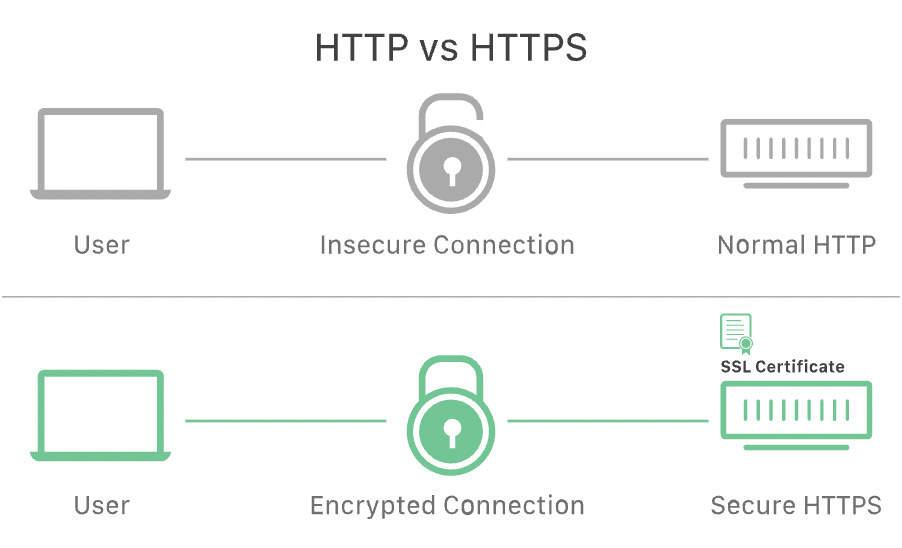
How Does SSL Work?
The process of encrypting information between the browser and the website is an encryption masterclass. However, we break it down into a simple explanation.
1. Whenever a visitor tries to access a website, the browser checks if it has an SSL certificate.
2. The verification process checks if the certificate is installed, valid, signed by a trusted CA, unrevoked, and prepared to secure.
3. Once verified, the SSL handshake begins. This handshake is essentially a cryptography method. Here the website and the web server exchange their public key. These keys allow both parties to encrypt the messages. Only the other party has the key to decrypt it as well.
4. When the user enters the information into the web server, the browser makes sure it is encrypted. Because of this encryption protocol, only the web server can decrypt it using a private key.
5. This is how a secure connection is established between a browser and the web server with the help of an SSL certificate or even TLS. Transport Layer Security (TLS) is considered the advanced SSL. However, SSL is more widely used.
Does SSL Improve SEO Rankings? If Yes, How?
Now that you know what an SSL certificate is and how it works let’s get to the main question. Does SSL provide an SEO boost, or does it even matter to SEO?
The short answer is that it matters.
In 2018, Google’s update made it clear that SSL certificates play a role in ranking signals. They did so by showing upfront which website is secure and which isn’t.
The search engine marks all HTTP websites as “unsecure” and marks HTTPS websites as “secure.”
In 2014, Google mentioned that SSL certificates could serve as tiebreakers if two websites have all other SEO ranking factors down to the wire. The statement means if you have a website with SSL and a competitor who doesn’t, you will get a higher rank if the rest of your SEO factors are the same.
However, how much does it matter to focus your search engine optimisation efforts? To understand that, let’s find out how an HTTPS website helps your business.
What are the Benefits of Making Your Website HTTPS from HTTP?
As you know now, adding an SSL certificate to your website essentially means migrating your website from HTTP to an HTTPS website. When the process of changing the Hypertext Transfer Protocol Secure (HTTPS) is done the right way, you can experience several benefits.
Primarily because many warnings and limitations of an HTTP protocol are eliminated, which gives room to many possibilities.
Here are the benefits of using an SSL certificate and choosing the HTTPS protocol.
Google Will Not Throw Warnings and Flag Your Site
An HTTPS website is free from warnings from Google. This can change the way users perceive your website in multiple ways.
The image below shows how after the 2018 update, Google makes sure the sites that do not have SSL certificates are shown loud and clear with a “not secure” tag before the URL.
If you are a business dealing with customers and transactions, users will be put off by such markings.

Therefore, when you shift to HTTPS, all these markings go away. Your website will no longer be flagged, and you can enhance the user experience for your visitors.
Users Can Trust Your Site
Naturally, people will be reluctant to engage when something is flashing as unsafe. If you are driving and see a warning sign about a school zone on the street, you will slow down and be more alert.
Google’s warning that says “your connection is not private” will yield similar results. When visitors come across this page before reaching your website, chances are they will not engage further. As shown in the image below, a warning like this is enough to drive users away.
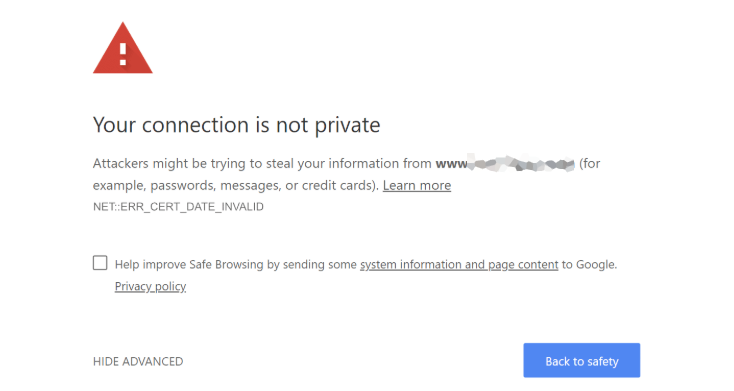
Even if they do navigate to your website despite the warning, they will be cautious of what they will and will not share on your site.
It isn’t limited to sensitive information such as financial details. Personally Identifiable Information (PII) is any information associated with a user. Hackers can leverage any such information for a cyber attack or even identity theft.
Thus, if your website is not secure and has warnings supporting this claim, visitors might be reluctant to submit their email details for a subscription.
However, secure websites do not go through the trouble and automatically gain users’ trust.
You Can Support Mobile Technology Better
Globally, there are more mobile users than ever today. Search engines also pay close attention to how users interact with your website through mobile.
Google even has a mobile-first index for ranking signals. This means the mobile version of your site is considered for ranking over the desktop version. Your mobile site needs to have good navigation and high speed.
To help with speed, Accelerated Mobile Pages (AMP) was created by the efforts led by Google and Twitter. This framework helps load lightweight pages quickly on mobile sites. Thereby increasing the speed of a mobile site and enhancing the user experience.
However, AMP only supports HTTPS websites. Since website performance is crucial for ranking, you might miss out on this tool with an HTTP website.
As we advance, the mobile-first approach is going to become more common. Therefore, ensuring the best experience on mobile is a significant part of SEO and ranking. You can align the HTTPS websites in this direction.
You Can Prevent Cyberattacks
When the digital shift happened in 2020 with COVID-19, technology experts found a lot of innovative technology initiatives. At the same time, hackers also found inventive ways to launch cyber attacks. In such times, having a secure website is imperative.
However, an HTTP site is an easy cyberattack target. Here are some common cyberattacks that can happen with such sites:
1. Man-in-the-Middle Attack: A hacker tries to intrude into the communication between a client and the web server during this attack. If they get hold of the site, they can modify the communication and change it entirely. All the while taking the actual information for their benefit.
The image below is a representation of how such an instance can occur. The perpetrator forms a new connection, essentially as a middle man, and steals confidential, sensitive information from both parties.

2. Phishing: Since an HTTP website is not secure, there is nothing that can differentiate you from another site that is trying to impersonate you. During phishing scams, hackers use a fake website close to the original and collect data from visitors. Hackers then use the sensitive information to carry out other cyber attacks. Data breach, identity theft, corporate espionage, and many more. In 2022, phishing attacks will be responsible for over 80% of cyber attacks.
However, your visitors will be familiar with security and user experience if your site is secure. Because of this, your site can be safer from phishing attempts.
A connection that is unsecure leaves room for possibilities of cyber attacks, whereas an HTTPS website will not pose such threats.
It Can Help Your Ranking Signal
HTTPS websites can indirectly play a significant role in search engine results. As explained above, visitors don’t see any warnings whenever visitors enter an HTTPS website.
But, when the same visitor navigates to an HTTP website, they might close the site almost immediately. Even if you have created quality content, users will never know because they were too wary of your website to stay long enough and interact.
When users quickly navigate away in this manner, your website’s bounce rate increases. Google also considers bounce rate as one of the factors for ranking.
Additionally, when users engage less on your site, Google recognises this as a sign that your web page is not the ideal choice for that particular keyword. So even if you were ranking on the first page, this could drastically bring down your ranking for the keyword.
Hence, having an HTTPS website ensures users stay on your page as long as your content serves them well.
That is why you can understand from the graph below that the percentage of HTTPS domains is highest for the first few positions. As the number decreases, so does the percentage.
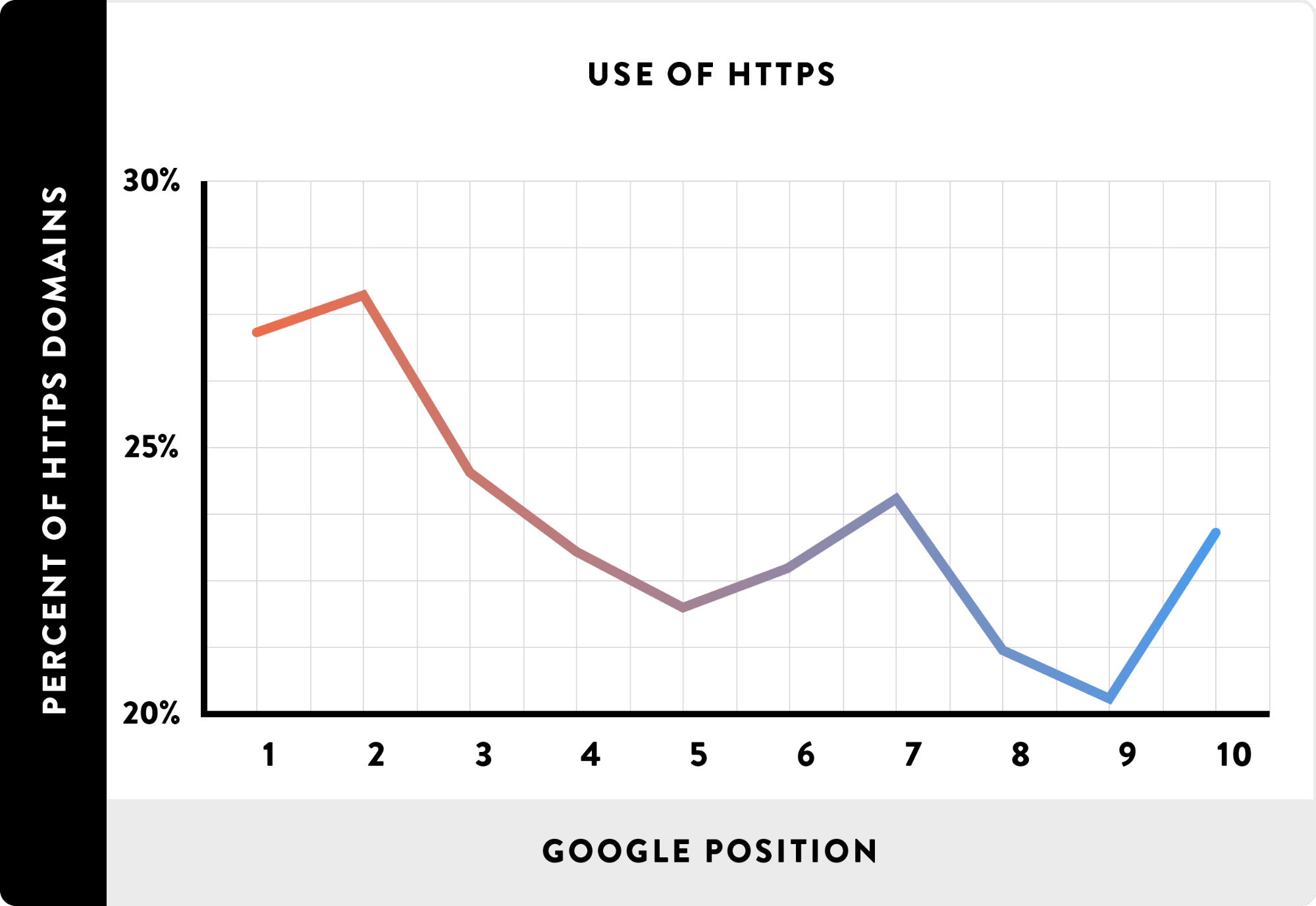
Why is it Necessary for e-Commerce Sites?
The direct correlation of HTTPS websites is to process sensitive data securely. However, not all websites collect this data. Without other benefits, only the websites that collect such information require HTTPS websites.
That is why e-Commerce sites must have SSL/TLS.
Without this trust in a secure website, visitors will not purchase on a site that is screaming “not secure.”
Additionally, e-Commerce sites that collect payment details need to comply with PCI compliance. The Payment Card Industry Data Security Standard (PCI DSS) is the set of PCI rules. It is mandatory for the websites handling certain credit cards that require such security measures.
The table below addresses the categories of compliance measures and what you need to do to fulfil them. Among the twelve requirements, the fourth one clearly states that you must protect cardholder data in transit. This is where SSL certificates are vital, as they encrypt the data shared by the users.
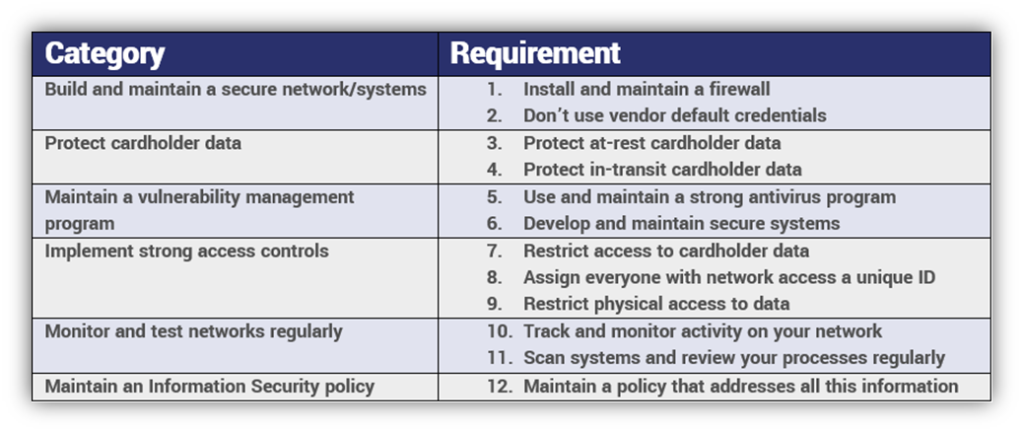
PCI has several guidelines on how you must choose an SSL/TLS certificate. Once you have met all the criteria, your e-commerce site will be ready to provide you with a successful business.
What are the Challenges of Switching to HTTPS?
So far, you have learned how HTTPS websites are great for businesses and even play a role in SEO. Even SEO experts agree!
While this is true, you must also think about the work that goes into creating such HTTPS websites.
1. SSL Certificates can be expensive: Small business owners usually have a limited budget for their marketing efforts. Therefore, changing or migrating a site from HTTP to HTTPS is a severe undertaking and expensive to acquire.
2. It can negatively affect your ranking: If you have built your site’s rankings with a lot of effort, you don’t want to jeopardise that unless needed. When you don’t migrate to HTTPS by following every instruction well, you can lose the ranking of many relevant keywords.
Installing an SSL certificate is not enough. You have to take vital steps to make it successful. Ensure appropriate redirects, check compatibility with your CDN, change internal links, index pages carefully, update the sitemap, etc. You need to do this with utmost care.
If all of this is too overwhelming, you could hire SEO consultants to help in the process, but it is a time-consuming process to make sure it is done perfectly,
Even then, you might lose some ranking. Here is an example. 72pines shares their migration experience and how their rankings dipped, as depicted in the graph below.
However, even after the dip in ranking, you can thoroughly check areas you missed during the change and fix the issue. Once Google understands that issues are fixed, your ranking can return.
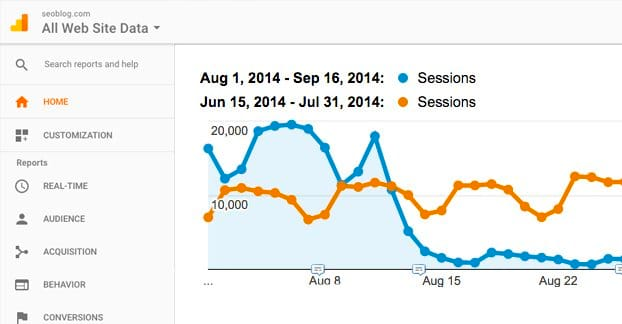
Final Verdict: Should You Get an SSL Certificate or Not?
Finally, we must answer our initial question – does SSL improve SEO? After this read, you know the answer is yes. Directly and indirectly, SSL certificates do play a role in sending the right ranking signals.
However, should you make the shift to SSL? This is a multi-faceted answer.
Starting off your website today, you can consider using a free or economically viable SSL certificate option. But if you are a website that does not collect any personal detail from your visitor and has limited resources to make this change, should you still jump leaps and bounds to make this happen? Maybe not immediately.
For now, you can focus your efforts on SEO factors that have a lot of importance, such as backlinks, creating quality content, making on-page and technical optimisations, and more.
However, you should revisit the strategy of shifting to HTTPS whenever you can.
That is because Google and other search engines consistently update their ranking factors and algorithms. Making sure visitors have a good experience on the website is crucial. Providing a security certificate is part of that experience.
Therefore, you should invest your time and effort in shifting to an HTTPS website whenever possible. So in the future, if the search engines do give such factors more importance, you will be prepared to rank well in the future.




